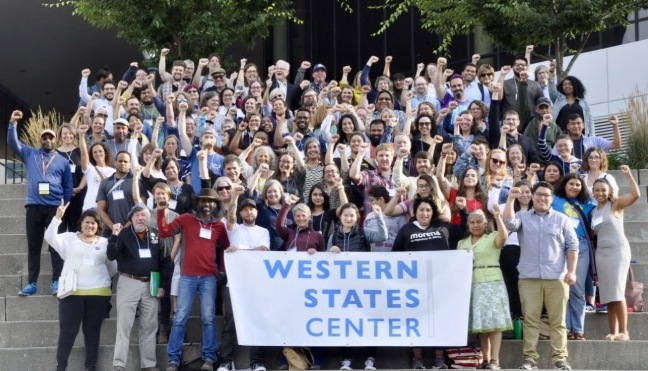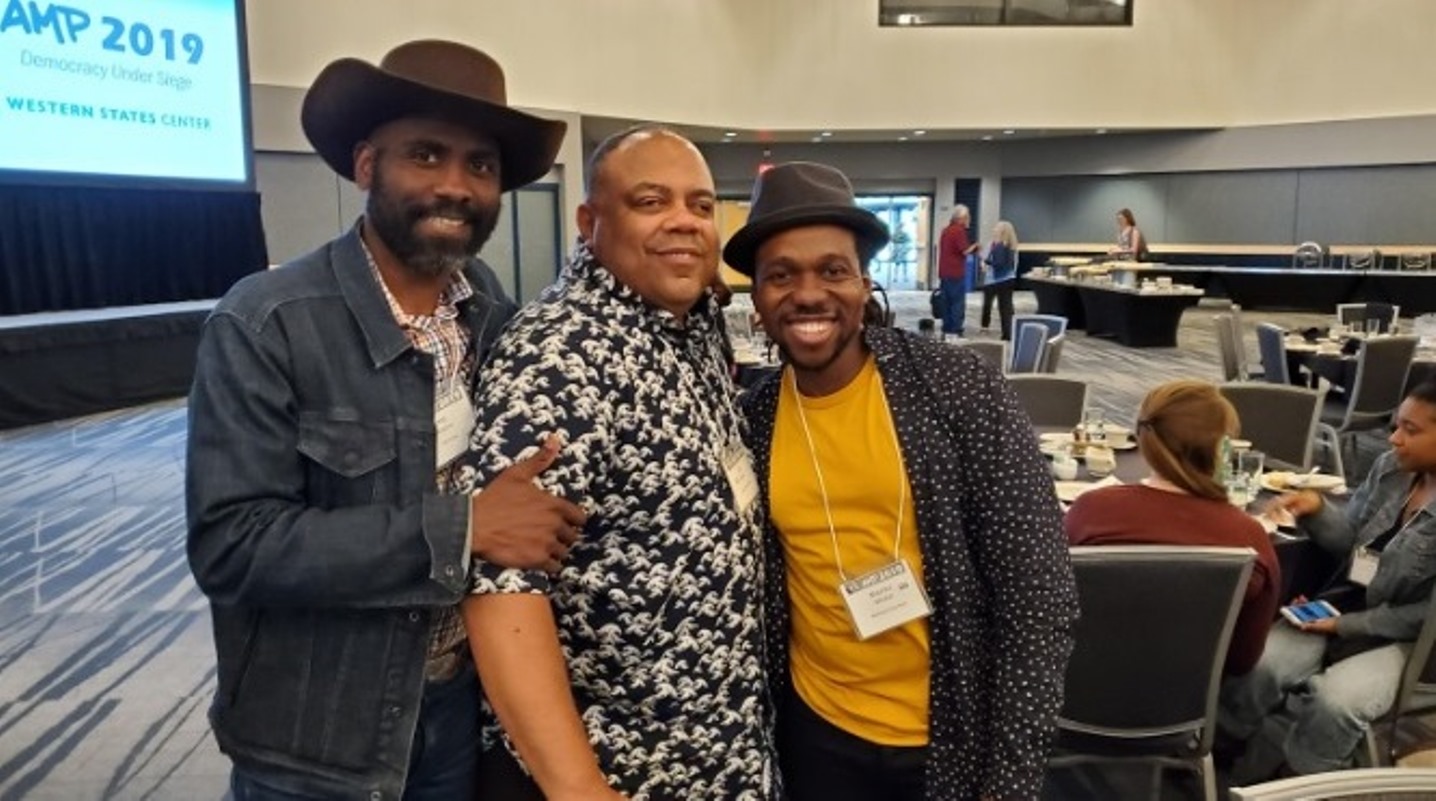Wondering why Oregon’s attempt to pass legislation to limit carbon pollution failed this year? Eric Ward, executive director of the Portland-based Western States Center, attributes the disappointing outcome to the rise of white nationalist groups in rural Oregon. Those groups threatened violence to defend GOP lawmakers who fled the Capitol to prevent the passage of the climate bill.
“Right-wing and nationalist groups have been increasingly visible in Oregon over the past five years as rural voters get more disillusioned,” said Ward. “In frustration, there are organizations and individuals who have stepped into a leadership gap and are attempting to provide parallel leadership. But that leadership is led by bigotry and threats of violence.”
At the 2019 Activists Mobilizing for Power (AMP) conference, hosted by the Western States Center, hundreds of advocates came together to talk about how the rising influence of white nationalist groups is impacting issues from climate change to education.
Activists Mobilizing for Power is a gathering for policy advocates and social justice organizers from every issue area in the progressive movement. One of the things that sets AMP apart from other activist conferences is its regional focus: AMP is designed to bring together justice leaders from the Pacific Northwest and Intermountain West states. This approach offers a unique opportunity for activists from every community to learn from each other about emerging trends in the Northwest that impact folks across issues and states. It’s the only event I know of focused on building progressive political power across issue areas in a particular region of the US.
There’s a lot that folks at the Sierra Club can learn from Activists Mobilizing for Power, which is one of the reasons we were proud to sponsor the event for the second year in a row. Just like the progressive movement is divided by issue area, the Sierra Club is separated into national campaigns and local chapters, often working in the same places on related issues. We’re such a large organization that our internal structures can divide us and keep us from collaborating, or even force us to compete for resources. We’re trying to learn from examples like AMP about how to work regionally, so that the folks working in a state to protect public lands and expand access to the outdoors are strategizing alongside folks working to advance clean energy and increase access to public transportation. When the Sierra Club moves as one community, we are more powerful together, just like the progressive movement.

AMP participants representing progressive organizations from the Pacific Northwest and Intermountain West states.
The world is changing faster than ever. Achieving our goals in this moment—when climate change, economic structures, and governing institutions all fuel inequity—means fighting for a bold agenda that recognizes the interconnected nature of our planet, people, economy, and democracy. The theme of AMP this year was “Democracy Under Siege,” with a focus on countering white nationalism and defending inclusive democracy.
As I was working to set up the Sierra Club’s sponsorship of AMP, I occasionally got questions like: "What does pushing back on white nationalism and protecting inclusive democracy have to do with the Sierra Club? Isn’t our work simply to protect the planet for everyone to explore, enjoy and protect?"
I wrote recently about how an intersectional approach to environmental and climate work can make it hard to know how to stay in your lane. But staying in our lane doesn’t mean ignoring the other drivers on the road. The work of defeating white nationalism is the work of the whole progressive movement, and the Sierra Club is part of that movement.
The Sierra Club is committed to a just, equitable, and sustainable future built on a foundation of racial, economic, and gender equity—a future where all people benefit from a healthy thriving planet and a direct connection to nature. We can’t build that world without confronting hate through spaces like AMP. We can’t even pass legislation to limit carbon pollution while white nationalists are willing to use violence and intimidation to enact their hateful agenda.
I know it’s a stretch for some folks to make this connection, all the way from fighting climate change to fighting white supremacy. But the bigots and the militia members get the connection. Many of them believe that our work to stop climate change is part of a vast global conspiracy to eliminate the “white race.”
Those of us who see the world more clearly are building a movement that addresses the climate crisis on the scale needed to head off massive climate disruption and species extinction. We also know that cannot be done without addressing the extreme inequalities that allow Big Polluters to deem some people, communities, and environments sacrificial. We say “NO!” to nationalist ideologies that demand we choose whole nations and communities to be winners and losers in the climate crisis. We say “YES!” to an abundant future where those most harmed by climate and environmental injustice are prioritized over profit and corporations.
Even though we say “NO!,” we cannot ignore the growing influence of eco-fascists and white supremacists. If we do, we aren’t doing our job to defend our planet and all its inhabitants. Or, as our mission statement puts it: “To educate and enlist humanity to protect and restore the quality of the natural and human environment.”
